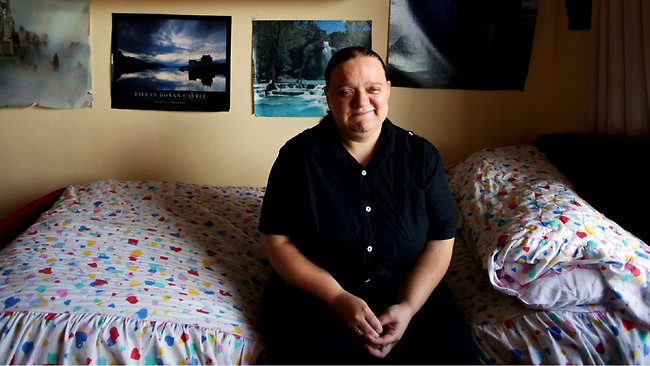Source: The Australian, by Rick Morton
 Katie Brookes has always maintained her own brand of "stubborn independence", but finds her resolve tested when applying for jobs and her vision impairment is brought up.
Katie Brookes has always maintained her own brand of "stubborn independence", but finds her resolve tested when applying for jobs and her vision impairment is brought up."It's difficult because some employers might assume I am incapable of doing certain things when, to me, my impairment doesn't define me at all and I know what I am capable of," she said.
The 31-year-old from Sydney's inner west has a degree in biochemistry and biology, English and history and a masters in journalism, and would like to be a radio journalist.
She recently finished a Vision Australia pre-employment program, a first for the organisation, which dealt with barriers faced in gaining employment.
"They are so proud of it and it was really helpful for me as somebody seeking work," she said.
"It culminated in what was the most useful mock interview in a kind of real-world scenario I've come across and it specifically dealt with how and when we might disclose our disabilities to our potential employers."
The Australian Council of Social Service released a report last month that revealed 27.4 per cent of people with disabilities were living below the poverty line: earning less than 50 per cent of the median household income.
While 620,600 languished below the poverty line, the commonwealth's employment targets for people with disabilities were not being met.
The number of people with a disability employed in the Australian Public Service has fallen over the past 20 years: from 5.8 per cent in 1992 to 3.7 per cent in 2001 to 2.9 per cent last year.
"I think there needs to be more of a focus on what we can contribute to the economy, what we can achieve," Ms Brookes said.
She was born with a condition which means her bones are over-calcified. The build-up of calcium in her skull crushed nerves, leaving her with no vision in her right eye and about 30 per cent vision in her left.
Vision Australia's program, which has gained international recognition, aims to give skills to vision impaired job applicants to help them deal with employers who might be unsure about hiring someone with a disability.
"I suppose it's about communication and knowing how we can contribute to an organisation, and letting the new boss know that too," Ms Brookes said. For her part, she's ready and willing.
To find out more about the pre-employment program, call 1300 84 74 66.










